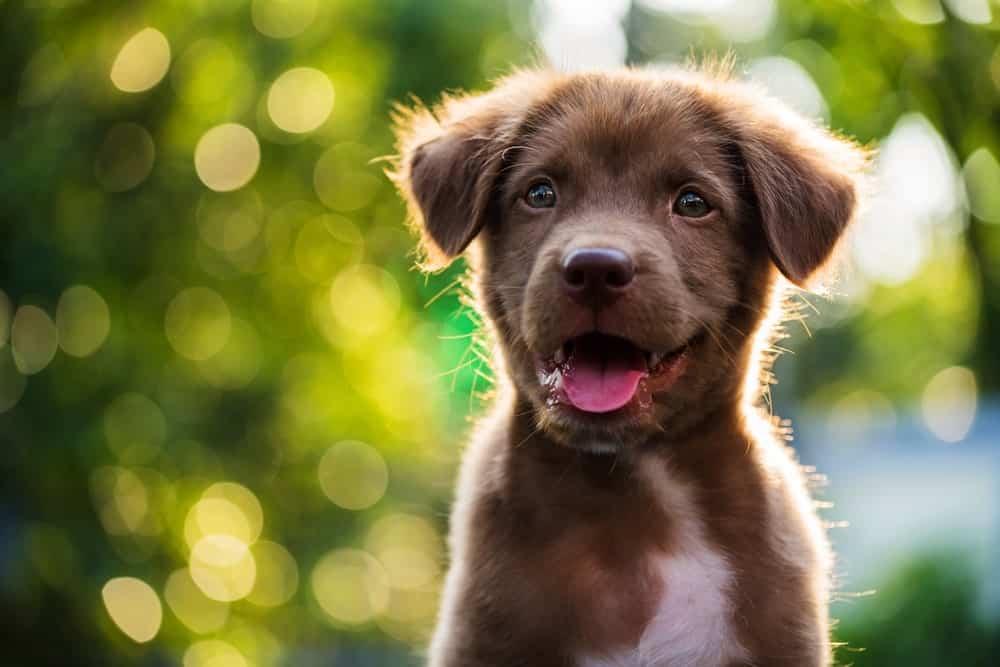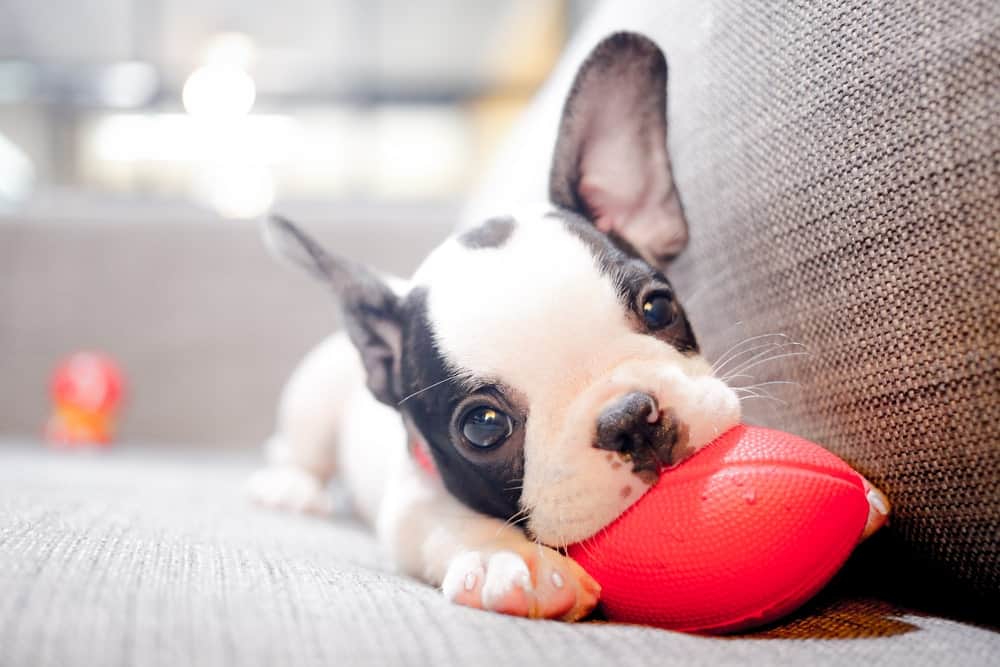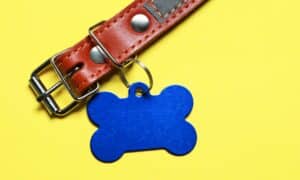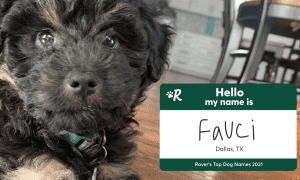“This post contains affiliate links, and I will be compensated if you make a purchase after clicking on my links.”
by John Woods
“Fluffy!” “Maximillian!” “Rex?” Which one are you going to be more comfortable shouting across the park? Quite simply that is one of the most important questions to ask yourself when naming your puppy.

You are going to be calling his name thousands of times over his lifetime, you will also be checking him into the veterinarian and groomers!
Whilst Chew Barka was a great idea as a pup, it probably isn’t that endearing in the vet office at 12 years old.
Names Are Identities For Humans
Whilst names are part of our identity as a human, it’s a little different for dogs says David Woods from My Pet’s Name.
Generally, as we are training them, we call their name and ask them to do something. We then praise and reward. A puppy name serves more as a cue or a marker, and it’s generally followed by something good.
This helps us bond massively, they learn that we are generally the givers of good things (praise or reward).
To that end, we want to set them up to succeed.
Choosing a Name
We need to give them a name that’s easily identified and they know instantly what it means.
It needs to be short and snappy. It’s much easier to get their attention with one or two syllables like “Max” or “Rex” than “Penelope” or “Alexandra.” Puppies and dogs tend to respond better to jovial and high-pitched tones, so consider how easy it is to intonate certain names.
We also need to avoid names that sound like common commands.
For example, if you are calling your pup “Kit” but he’s nowhere to be seen, he could be practicing his “sit” around the corner as that’s what he thought you said.
Equally, Beau sounds like “no,” we can already see the look of confusion when you say, “Good Boy, No!”
Recall would be a nightmare with a dog called “Ray” who thinks you want him to “stay” all the while!
It is sometimes thought that human names should be avoided as they can sometimes cause owners to treat their pups more like humans, but we think this is individual choice.
Just be mindful if you are naming your dog after family members, firstly if they passed, whether the emotional connection can be well managed and secondly, if they are alive, how do they feel about having a dog named after them?

Naming After Temperament
Consider whether the name suits their size and breed.
Are you going to want to shout “Muffin” your German Shepherd back to you? Or would you rather call “Boreas” your sled dog? (Boreas was the Greek God of the Cold North Wind)
Popular dog names include: Bear, Rocky, Jack, Buddy, Charlie and Max. For the girls, they include: Bailey, Molly, Sadie, Luna, Lucy, Bella and Lola.
Notice how they are all one or two syllables. Short and snappy.
We also wouldn’t mind shouting them across the dog park for the foreseeable future.
But in the same breath, be careful with popular names. If you are going to spending time in heavily dog populated areas, you may want to consider a not so common name.
If pup is going to spend time in day care with 4 other Buddy’s, they’re all going to get confused. Equally, if you plan to visit the dog park on a Saturday morning, you could have 6 Lola’s running back to you!

Puppy Names Are Cues
Your puppy’s name will be the cue or marker to many commands you ask him to perform.
As he is praised and rewarded, he will associate his name with something good. He is more likely to respond to it and the commands that follow it.
It needs to get his attention, so should be easily identified. One or two syllables are best, as is a name you can easily intonate. Puppies especially love high-pitched tones; it sounds super-exciting and interesting.
Be careful not give pup a name which sounds like any basic commands. Consider the associations you have with any names you choose – does it have an emotional attachment?
The last thing you need is to name pup “Ozzy,” then months later remember that Ozzy Osbourne was your late cousin’s favourite front man.
You’ll never be able to look at pup again without thinking of your cousin – for better or worse.
About the Author
John is a professional dog trainer and is a member of the Association of Professional Dog Trainers.


















